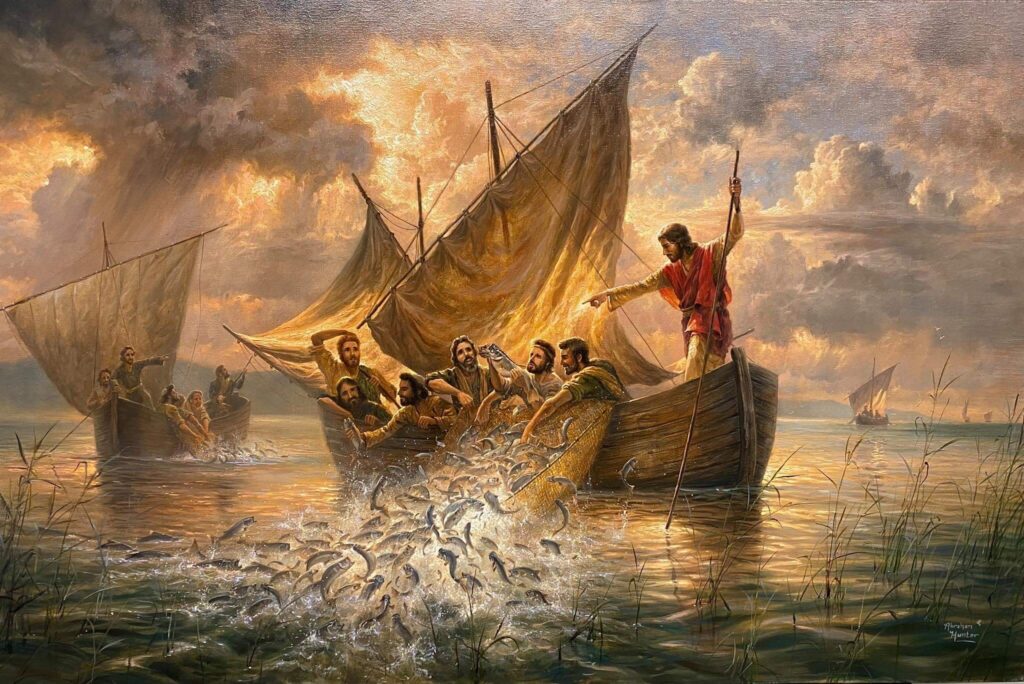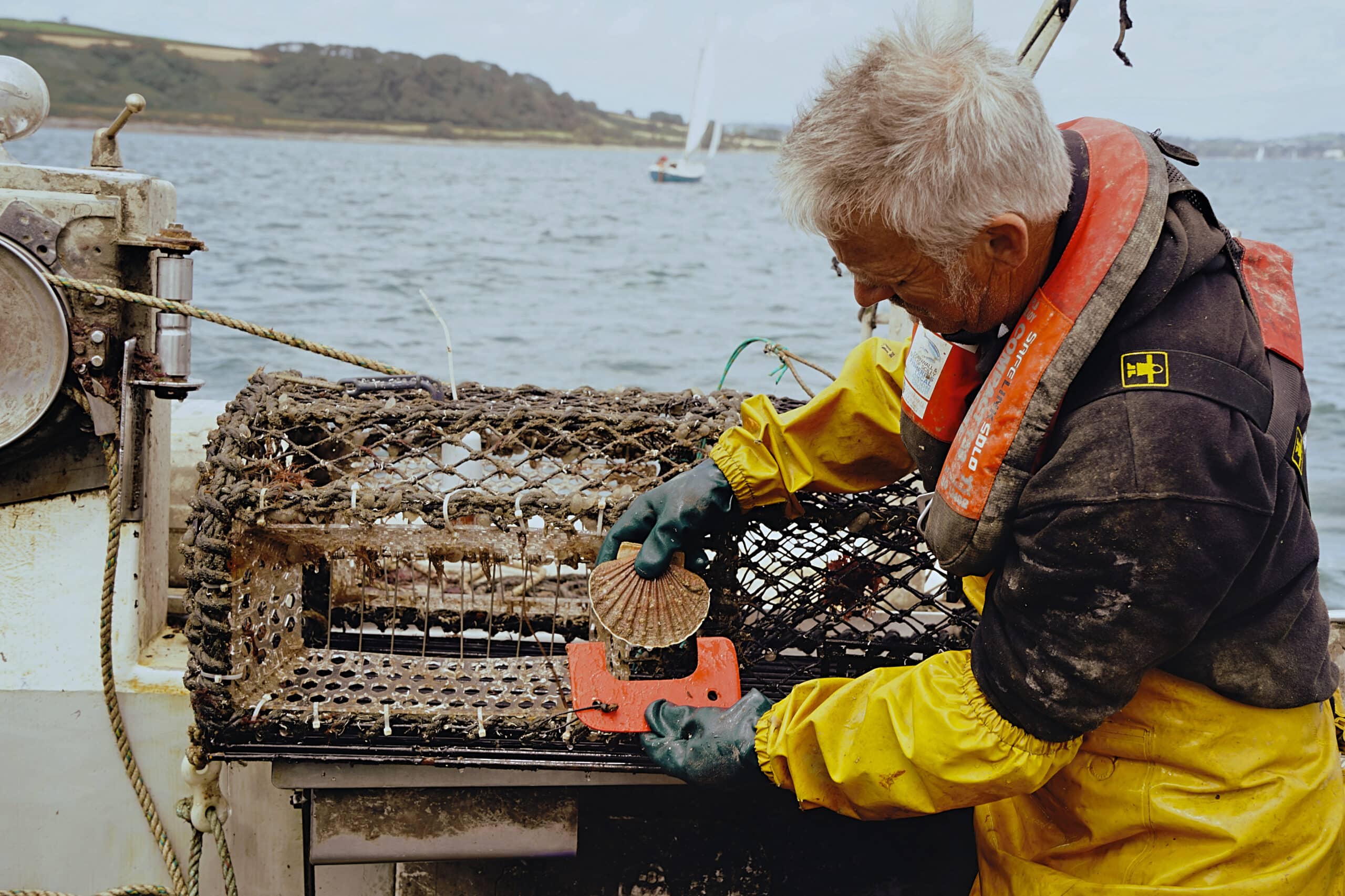![]()

![]()

After last years sell out event we are joined again by our friends at kam media for a hosted lunchtime feast showcasing the very best of our shores and the importance of adopting a sustainable future.
Tuesday 10th June 11.30am – 4pm
We will be posting regular updates on here including speakers and menu in the coming weeks.
Tickets are now on sale £200+vat and available by enquiry.
In association with KAM & Hospitality Rides, raising money for Only A Pavement Away and The Licensed Trade Charity
Introduction
Our namesake, Faber (Zeus) being the Latin for the well-known John Dory fish has a rather distinct mark on its side. This mark is referred to in the bible, it is said to be the thumbprint of Peter the Apostle who, scriptures has it, was told by Jesus to row out into the sea of Galilee and cast his nets. After dropping a coin Peter reached in to pull a fish out that had swallowed it, to this day Peter the Apostles thumbprint remains on the John dory.
Sadly, the very name should act as a reminder to us all! The fish that is now found in abundance in UK waters was sadly over fished and stocks were obliterated in the sea of Galilee, the past may not have been aware of sustainability as we are today, but it remains a topic we should not forego lightly.
To this day Peter the apostle remains the patron saint of fisherman. An occupation to this day that carries many dangers and responsibilities.
The venue you sit in today is not just a restaurant, it’s a showcase to a sustainable British shoreline, it’s a reminder to what we should cherish and protect, one of our islands greatest assets both as a rich, nutritious source of food, energy, tourism and well being.

katy moses gives a clear insight into how our guests perceive the importance of sustainability & how it drives decisions
In the KAM Golden Years research conducted earlier this year, local sourcing was the 4th top preference in this age group (65 years plus), after location, changing menu and quality of staff., whilst sustainability was deemed important by 26% of respondents.
In this same research, the older generation is more accepting of price increases if foods are sustainably and ethically sourced.
Sustainability has a bigger effect on the 18-34 age group where, talking about sustainability and ethics via social media on the operators own channels over-indexes vs other ages groups. Building the brand story to include content around these areas resonates with this age group especially (it becomes less important as they get older) – and helps with brand loyalty.
In research completed last year for the BII, they found that 50% of guests want more sustainable food items, and 40% want more locally sourced items.
“I’ve been privileged to be a guest on two panels recently – one for Heineken UK and one for 4C Associates – where a key topic was around sustainability.
I’ll tell the truth, it’s an area I know only a little about (but have now learnt a lot more!) but hadn’t appreciated the scale of what sustainability in the hospitality industry actually means. And that it means different things to different people and businesses.
Jo Lynch, Account Director @ KAM:
“Sustainability is not a new topic. Consumers have been demanding sustainability in pubs and restaurants since before the COVID-19 pandemic, when more than four in five people expected hospitality businesses to have some form of eco-friendly qualities.Since then, operators have started making great strides in their bid to become carbon neutral, with most operators having business objectives to get to net zero. And it’s hot topic for UK Hospitality’s agenda with the government.”
Chris Hadfield discusses the benefits of growing demand for oysters and the positive impacts sustainable farming will have on our shorelines
For two decades, Richard Emans, his family, and their team have been growing some of the UK’s finest oysters in the waters of Goldhanger Creek in Maldon’s Blackwater Estuary in Essex. The river and its flat, untouched marshes are just 50 miles from London.
Maldon Oysters now manage 3,500 acres of the Blackwater, and they are fastidious in their research to ensure sustainable cultivation techniques produce the best quality oysters. The area is a Site of Special Scientific Interest (SSSI) and their ethos is always to work alongside this delicate ecosystem and the beautiful salt marshes that surround the estuary.
Over the past 20 years, they have introduced millions of oysters that they grow and cultivate alongside the native fishery they are re-instating. They’ve also led the market with our innovative approach to depuration by building a state-of-the-art purification and packing facility.
Chris Hadfield heads up our sales and production team, ably assisted by Waldek Babicz, who keeps everything running smoothly. With over twenty years of experience between them, you are in good hands. They take pride in driving standards and the company’s culture of blending the latest cultivation techniques with a timeless hands-on approach to growing fine oysters.

Mark Chapman is the founder and CEO of the Zero Carbon Forum, a non-profit organisation which builds on 10 years of carbon reduction collaboration in the UK’s hospitality sector.
Imagine flooded businesses, parched farms, struggling customers who stay at home. It’s already happening — and a certainty we all face if we don’t get carbon in check. Not for 2050 — but right now. It’s not prediction anymore, it’s data. Now, it’s about more than just protecting the bottom line, but the planet and people that make everything about our business possible. And zero is the only way.
The good news is some of the most well-known names in hospitality and sustainability are already taking action together. The goals are set. The resources are in place. And we each know exactly what we need to do. 81% of companies are more focused on sustainability than they were just three years ago. That’s because to stay still is to fall behind. Not only do 62% of consumers prefer to buy from sustainable brands, but 90% expect companies to take environmental responsibility.
The Zero Carbon Forum is a non-profit organisation, empowering members to reach sustainability targets with more speed, efficiency, and profit as a united effort. With defined roadmaps backed by peers, government, and leading sustainability experts — together we’re on a path to survive and thrive.
Rachel is a communications consultant with a passion for revolutionising the way we enjoy seafood. From championing lesser-known British species to influencing global tuna fishing policies, she’s dedicated to waving the flag for sustainable, responsible UK seafood.
Disco Scallops are redefining how we harvest scallops in the UK. Working from coastal communities across the country, they employ an innovative method that uses LED lights to attract scallops into specially designed pots—a technique that is both sustainable and non-destructive to the seabed. This approach offers a viable alternative to traditional dredging, which can harm marine habitats.
The term “Disco Scallops” refers to scallops caught exclusively using this potting method with LED technology. This technique not only preserves the marine environment but also provides small-scale fishermen with an opportunity to diversify their catch and increase the value of their fishing trips.
The discovery was serendipitous. Fisheries scientists from Fishtek Marine in Devon were experimenting with ways to increase crab and lobster catches by adding lights to pots. Unexpectedly, they found that while the lights had little effect on crabs and lobsters, they attracted large numbers of scallops into the traps. This led to the development of the Disco Scallops method, which has been refined over years of research and testing.
The team behind Disco Scallops includes Lee Cash, a prominent restaurateur known for founding Peach Pubs; Dr. Rob Enever, the Fishtek Marine scientist who made the initial discovery; Rachel Walker, a communications consultant passionate about sustainable seafood; and Mike Berthet, a seafood sustainability expert with over 40 years of experience.
Today, Disco Scallops are available to restaurants and consumers seeking high-quality, sustainably sourced scallops. The method supports small-scale British fishing communities and ensures that the scallops are harvested with minimal environmental impact. It’s a win-win for both the ocean and seafood lovers.

Joanne is at the heart of Câr-y-Môr’s mission, bringing people and purpose together with warmth and clarity. Whether guiding visitors or championing Welsh seaweed, she reflects the spirit of the farm—community-driven, rooted in place, and full of hope for the sea.
Along the wild and windswept coastline of Pembrokeshire, Câr-y-Môr is quietly leading a sea change in how we farm the ocean. Based in St Davids, they are Wales’ first community-owned regenerative seaweed and shellfish farm—an ambitious, grassroots venture built not just to harvest from the sea, but to heal it.
Câr-y-Môr—meaning “For the Love of the Sea”—operates as a Community Benefit Society, owned and supported by over 500 members from all walks of life. Their mission is twofold: to improve the coastal environment through regenerative ocean farming, and to enhance the well-being of the local community through sustainable job creation and environmental restoration.
Their 3-hectare ocean farm in Ramsey Sound cultivates native seaweeds and shellfish without the use of feed, fertilisers, chemicals, or freshwater. This zero-input approach not only produces nutritious food but also enhances marine biodiversity, improves water quality, and provides coastal storm protection.
Beyond farming, Câr-y-Môr is deeply invested in community development. They have created 13 fulfilling jobs, many filled by local residents, and offer educational workshops and outreach programs to inspire the next generation about sustainable aquaculture.
Their seafood—ranging from fresh seaweed to shellfish—is supplied to chefs, shops, and family tables across Wales and beyond. Notably, their produce features in dishes at Tomos Parry’s Super Eight London restaurants, Faber and at Bluestone in Pembrokeshire.
Câr-y-Môr stands as a testament to what can be achieved when a community comes together with a shared vision: to protect and revitalise the sea while creating a sustainable future for the people who depend on it.
At Forgotten Spirits, innovation meets sustainability in the heart of the UK. Founded by renowned chef Ashley Palmer-Watts, the company transforms surplus ingredients from British farms into distinctive, flavor-forward non-alcoholic spirits. Utilizing advanced techniques like cold extraction and ultrasonic cavitation, they capture intense flavors from fruit, leaves, and roots that would otherwise go to waste.
Their commitment to sustainability extends beyond ingredients. Forgotten Spirits employs a circular supply chain, reusing Bordeaux-style bottles returned by customers, and packages their products in lightweight green glass made from 90% post-consumer recycled material. Even their cork closures are crafted from agglomerated offcuts, reducing waste from traditional cork production.
By blending culinary expertise with environmental responsibility, Forgotten Spirits offers a new way to enjoy complex, non-alcoholic beverages that are as kind to the planet as they are to the palate.
Here are eight simple yet delicious dressings that pair perfectly with fresh oysters, each designed to complement their natural flavour without overwhelming it.
Read moreThis year, why not surprise your guests with these five exquisite seafood-inspired recipes that are as celebratory as they are delicious?
Read moreAlcohol free cocktails made for all tastes and still using British coastal ingredients.
Read more
